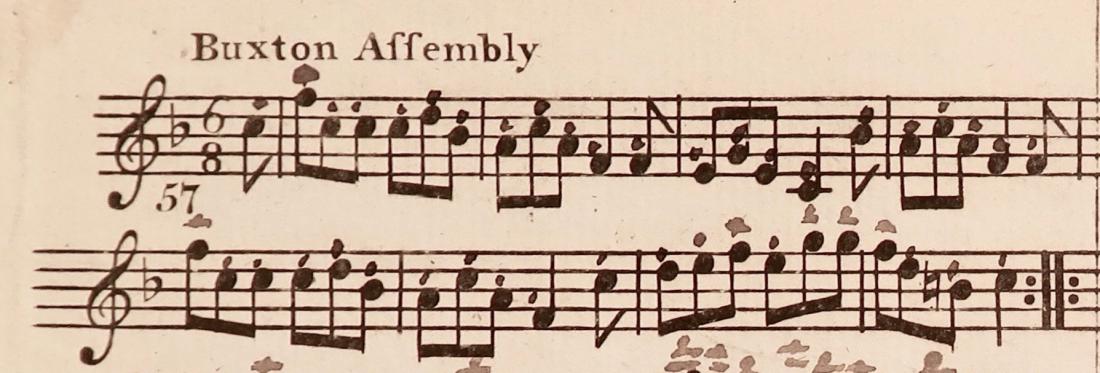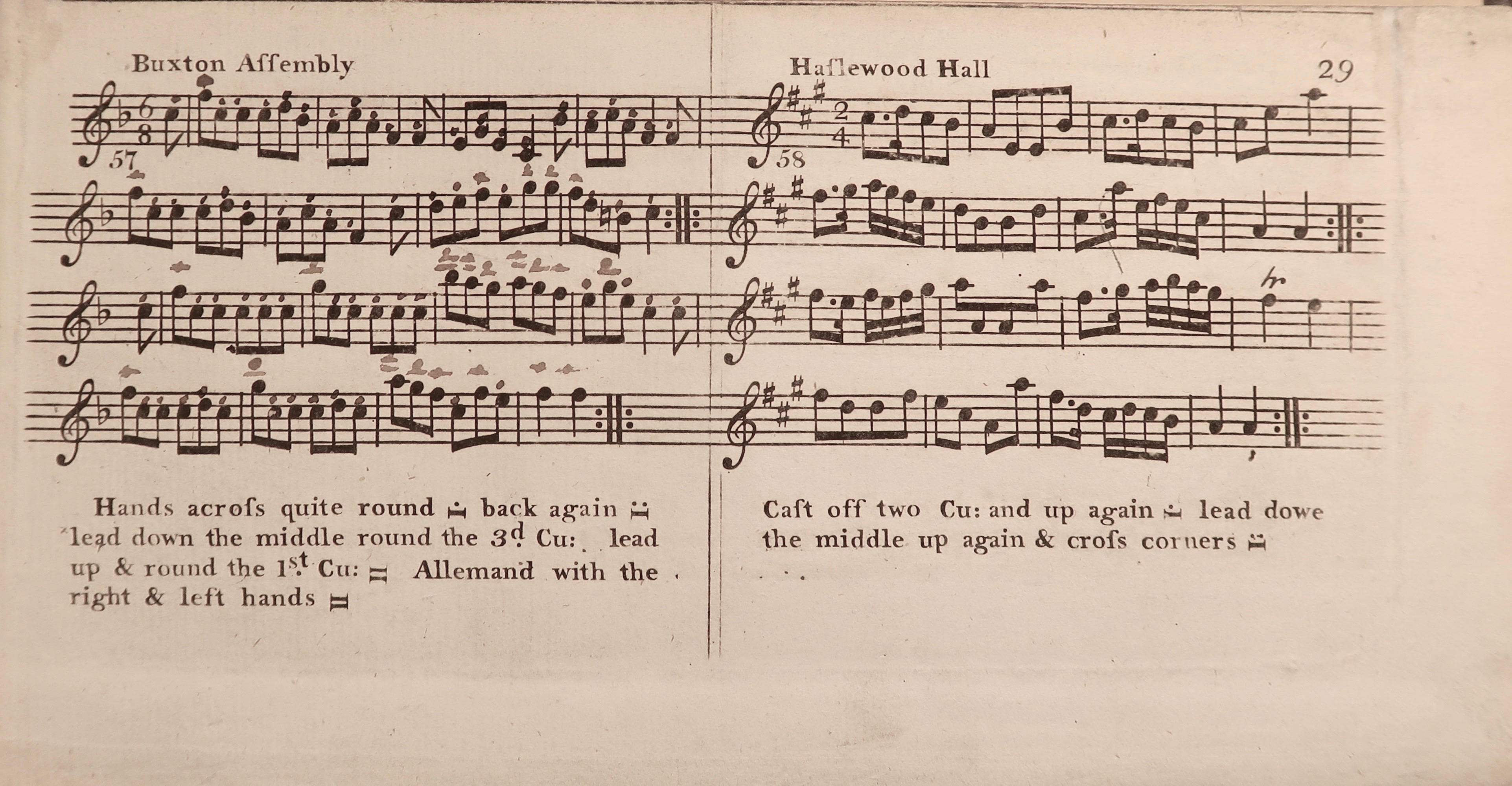
Preston's 24 Country Dances for the Year 1788 - Buxton Assembly
Twenty Four Country Dances for the Year 1788 with Proper Tunes and Directions to each Dance as they are Performed at Court, Bath, and all Public Assemblys (London: J. Preston, [1788])
-
Buxton Assembly
Image courtesy of the British Library Board, Music Collections a.252.(2.), p. 29
To download mp3 files either click on the three dots or right-click on the player and choose the save/download option.
Recording Details:
Rikki Wolpowitz - flute
Robert Percival - bassoon
Wiebke Thormählen - violin
Recorded at the Royal College of Music, London, 20 May 2021
John Preston and his son Thomas produced a wealth of dance music in the late eighteenth century, including annual publications of country dances. The original score is in an oblong format and printed for just a solo treble line, which was common in country dance publications of this period. Sometimes instruments were mentioned on the title pages of these collections, such as violin, flute, oboe or flageolet. Fiddlers were often employed to play dance music and this arrangement for flute, violin and bass essentially substitutes the flute for the first violin. Preston’s collection tapped into a variety of themes through the titles of individual dances, covering rural and exotic allusions, popular pastimes and places, the last two coming together in the Buxton Assembly.
Located in Derbyshire’s Peak District, Buxton’s spa waters had long drawn visitors and it was well situated for exploring the region’s natural beauties, despite many finding the township and its immediate surrounds dreary. Buxton lay primarily under the ownership of the Dukes of Devonshire and in the late 1770s William Cavendish, 5th Duke of Devonshire, commenced a programme of building works that saw Buxton emerge as a northern rival to Bath. He employed the Yorkshire architect John Carr to construct Buxton’s Crescent over approximately a decade in the 1780s. The Crescent contained lodging houses, hotels, shops and a circulating library, in addition to an assembly room incorporated into the larger hotel. The assembly room featured a neo-classical interior design in the manner of Robert Adam and included marble chimneypieces costing £163 12s 10d. Payments for painting, plastering and furnishing were still taking place in 1788-1789 when Preston’s country dances were published. The assembly room also functioned as a place of worship, the local chapel being too small to accommodate the influx of visitors (Hembry 1990; Wragg 1978).
Overseeing the assemblies in the late 1780s was Gylbert or George Bluett, who was “Master of the Rooms” at Buxton. On 19 June 1788, Bluett advertised in the Derby Mercury that card assemblies would take place on Mondays and Fridays, with balls on Wednesdays, during Buxton’s season. A surviving subscription book titled “Buxton Ball Room/G. Bluett, Master./1788” contains both a page of regulations signed by Bluett and a list of subscribers, including the Countess of Derby (formerly Lady Elizabeth Hamilton), Duke of Manchester, and the Duke and Duchess of Devonshire. During this period there was an average of four hundred subscribers. Subscription costs were set at one guinea for the season, with non-subscribers paying 5s for ball nights and 3s for the card assemblies. Unlike other assembly rooms, there was no stipulation as to who could or couldn’t attend, although the cost in itself acted as a measure of selectivity (Grundy Heape 1948).
Further Reading:
Grundy Heape, R. 1948. Buxton Under the Dukes of Devonshire. London: Robert Hale Limited.
Hembry, Phyllis. 1990. The English Spa 1560-1815: A Social History. London: The Athlone Press; Rutherford, Madison & Teaneck: Fairleigh Dickinson University Press.
Wragg, R.B. 1978. “A Bath on the Peak.” Country Life, July 6, 1978.

Preston’s Twenty Four Country-Dances for the Year 1788, courtesy of the British Library Board, Music Collections a.252.(2.), p. 29.
